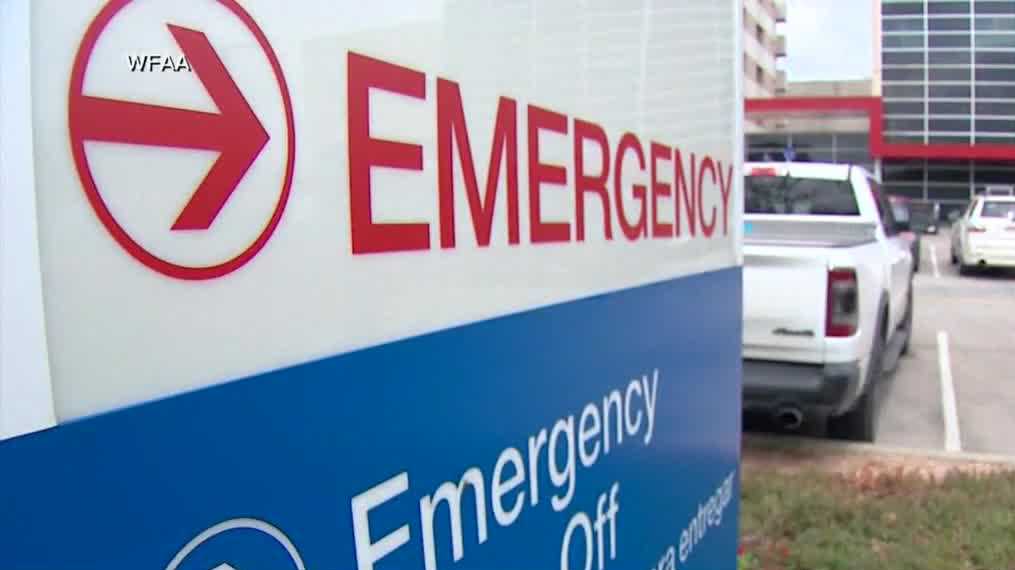Wisconsin state health department confirms 2 child deaths this season from RSV
The health department adds that respiratory syncytial virus or RSV, influenza, and COVID-19 are circulating at ‘significant’ levels.
The Wisconsin Department of Health Services, or DHS, has confirmed the first two pediatric deaths from a respiratory illness. The deaths are a result of respiratory syncytial virus, also known as RSV.’We have just learned of a second pediatric death – this one in the northeastern region of our state. And we know there are other young children hospitalized now,” said DHS Communications Specialist Elizabeth Goodsitt in a release sent to WISN 12 News.DHS adds that Influenza, RSV, and COVID-19 are circulating at significant levels in Wisconsin, with RSV activity increasing among children under 5 years old, and influenza sharply increasing in school-aged children. “Respiratory illness cases are on the rise throughout the state, and it is important to take steps to protect ourselves and our loved ones, especially before the holidays. Respiratory disease vaccines are safe and effective, and we urge all eligible Wisconsinites to get their shots as soon as possible. Taking steps to prevent respiratory illnesses helps keep us all healthy and can prevent serious illness, hospitalization, and death during respiratory illness season.” said DHS Respiratory Diseases Epidemiologist Tom Haupt.DHS encourages all Wisconsinites, especially children, older adults, and people who are pregnant, to get vaccinated against respiratory illnesses as soon as possible and follow good prevention practices, including washing your hands. They say that respiratory illness vaccines are safe and effective and prevent or reduce symptoms of respiratory illness infections like COVID-19, flu, or RSV.DHS says that individuals ages 60 and older, who are pregnant, and caregivers of children younger than 19 months should contact their health care provider to determine if RSV vaccination or preventive treatment is recommended for them. There are two options to protect children.An RSV vaccine (Abrysvo) for pregnant people between 32 weeks and 36 weeks of pregnancy during RSV season. The vaccine provides antibodies for newborns until they are 6 months old.A monoclonal antibody shot (nirsevimab) for children younger than 8 months and born during, or entering, the RSV season. Nirsevimab is also available for children between 8-19 months and entering their second season of RSV and who are at an increased risk of severe RSV disease.Wisconsinites can find locations offering the flu and COVID-19 vaccine by visiting vaccines.gov or calling 211 or 877-947-2211.Up-to-date information about the current respiratory virus season can be found in the DHS Weekly Respiratory Report.
The Wisconsin Department of Health Services, or DHS, has confirmed the first two pediatric deaths from a respiratory illness. The deaths are a result of respiratory syncytial virus, also known as RSV.
‘We have just learned of a second pediatric death – this one in the northeastern region of our state. And we know there are other young children hospitalized now,” said DHS Communications Specialist Elizabeth Goodsitt in a release sent to WISN 12 News.
DHS adds that Influenza, RSV, and COVID-19 are circulating at significant levels in Wisconsin, with RSV activity increasing among children under 5 years old, and influenza sharply increasing in school-aged children.
“Respiratory illness cases are on the rise throughout the state, and it is important to take steps to protect ourselves and our loved ones, especially before the holidays. Respiratory disease vaccines are safe and effective, and we urge all eligible Wisconsinites to get their shots as soon as possible. Taking steps to prevent respiratory illnesses helps keep us all healthy and can prevent serious illness, hospitalization, and death during respiratory illness season.” said DHS Respiratory Diseases Epidemiologist Tom Haupt.
DHS encourages all Wisconsinites, especially children, older adults, and people who are pregnant, to get vaccinated against respiratory illnesses as soon as possible and follow good prevention practices, including washing your hands. They say that respiratory illness vaccines are safe and effective and prevent or reduce symptoms of respiratory illness infections like COVID-19, flu, or RSV.
DHS says that individuals ages 60 and older, who are pregnant, and caregivers of children younger than 19 months should contact their health care provider to determine if RSV vaccination or preventive treatment is recommended for them. There are two options to protect children.
- An RSV vaccine (Abrysvo) for pregnant people between 32 weeks and 36 weeks of pregnancy during RSV season. The vaccine provides antibodies for newborns until they are 6 months old.
- A monoclonal antibody shot (nirsevimab) for children younger than 8 months and born during, or entering, the RSV season. Nirsevimab is also available for children between 8-19 months and entering their second season of RSV and who are at an increased risk of severe RSV disease.
Wisconsinites can find locations offering the flu and COVID-19 vaccine by visiting vaccines.gov or calling 211 or 877-947-2211.
Up-to-date information about the current respiratory virus season can be found in the DHS Weekly Respiratory Report.
